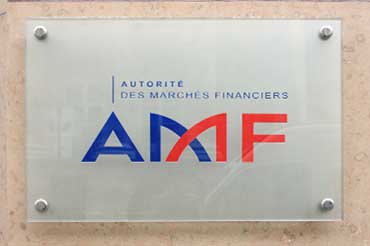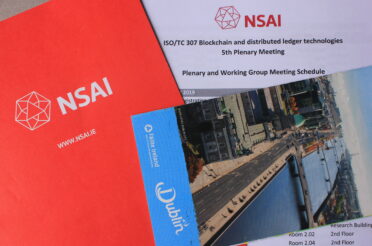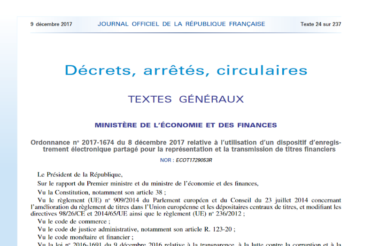After the Fin Tech world, it is now the turn of Legal Tech to be interested in blockchain and smart contracts.
On March 23rd, the association OPEN LAW, Le droit ouvert, organized in collaboration with the association France FinTech a meetup on the highly evocative theme of "Smart contracts and blockchain: a legal revolution?
Until now, the novelty and complexity of Bitcoin technology, as well as the lack of applicable legislation, had not aroused any particular interest among the majority of lawyers and legal experts.
The increased media focus on blockchain and smart contract technology in recent months is changing that.
The two main speakers of this meetup were Mr. Henri d'AGRAIN, General Director of the Centre des Hautes Etudes du Cyberespace and Mr. Thibault Verbiest, Partner (De Gaulle Fleurance & Associés).
Their opinion was particularly awaited insofar as they were also speaking the very next day at the symposium "Blockchain: Disruption and Opportunities" organized by the Commission Supérieure du Service Public des Postes et des Communications Électroniques on March 24, 2016 at the National Assembly.
After recalling that the explosion of publications devoted to blockchain dates back to July 2015, Henri d'AGRAIN said that 2016 is the year of awareness of the importance of blockchain, which he believes is closely associated with game theory.
The audience was particularly attentive to his description of the blockchain through its four main actors: the nodes, the miners, the people who exchange bitcoins with each other and the companies that use the blockchain to offer various services.
Very quickly, questions from the audience focused on the legal issues related to the definition of "smart contracts" as opposed to the legal conception of a contract under French law.
Thibault Verbiest then explained that, contrary to what their English name indicates, smart contracts are not necessarily contracts in the French legal sense. They are in fact computer codes, software, that allow a transaction to be executed by responding to a "If....then...." functionality, "If [something happens] then [this is what it triggers (e.g.: a payment is made)]".
In addition, the parties can request that only certain clauses of the contract be computerized in the form of smart contracts put on the blockchain. Smart contracts are then more tools to guarantee the execution of a contract, while reducing transaction costs by avoiding trusted intermediaries.
In conclusion of this evening, Henri d'AGRAIN declared that he was in favor of the institution of a "regulatory window with rapid response" and the institution of an independent administrative authority to regulate the blockchain industry in order to meet the need for legal security for companies working in the sector and to make the French territory attractive.
However, the best is often the enemy of the good. By wanting to regulate too much, there is a great risk of discouraging bitcoin and blockchain companies from setting up in France. Indeed, if we look at the American model of the BitLicence in New York what do we notice: while it exists since June 2015, several companies have left New York to settle in Switzerland and out of the twenty or so companies that have agreed to submit to this license, only the company Circle has for the moment obtained the BitLicence. The others are facing legal uncertainty and significant financial costs related to legal fees.
Moreover, the uses of blockchain (both Bitcoin and Ethereum) are so fast and varied that by the time a law is passed, its provisions may be quickly obsolete, as the technology has evolved significantly.
So what should we propose?
If technically the security of the blockchain is unanimously recognized in the world, the inscriptions on the blockchain (property titles or company titles for example) are not opposable to third parties and currently have no legal value.
The recognition of the legal value of these inscriptions is therefore eagerly awaited by the community. However, the societal consequences of such recognition are not lost on the legislator who, for the moment, is keeping a reserved attitude. Let us recall that during the colloquium at the National Assembly, the deputies were divided on the need to legislate on this issue.
The announcement on March 29 that Mr. Emmanuel Macron, Minister of Economy, Industry and Digital, has paved the way for the use of "blockchain technology" for participatory finance is therefore a positive first step towards official recognition of blockchain.
In the very near future, companies in the blockchain industry will have a self-regulatory action by setting the technical standards of the sector and the legal professions will work with developers to create the new legal tools put on blockchain.
Sources : Coindesk : Bitcoin Startups Stuck in Limbo as BitLicense Process Drags On – Blockchain : Disruption et Opportunités – Macron adopte la blockchain – Idées : Normalisation française de preuves sur la Blockchain
This article was first published on: www.bitcoin.fr






